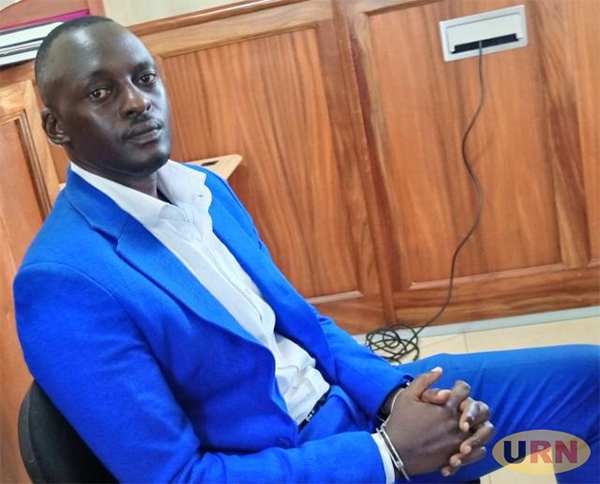
Kampala, Uganda | THE INDEPENDENT | The Attorney General’s office has defended the nine-month jail term handed to lawyer Eron Kiiza by the General Court Martial, arguing that it was a lenient sentence. This comes as Kiiza’s legal team, led by Peter Mukidi Walubiri, pushes for his release, citing a Supreme Court ruling that banned the trial of civilians in military courts.
On Tuesday, lawyers for Kiiza and the Attorney General returned to court for a possible ruling. However, it emerged that both parties had failed to meet the court’s deadline for submitting their written arguments.
Senior State Attorney Johnson Natuhwera, representing the Attorney General, told the court that the government had responded to some applications but not others. He claimed they had only found affidavits online without the main application and had not been served with copies. As a result, Judge Douglas Singiza opted to delay his ruling, stating that the matter required careful consideration.
During oral submissions, Walubiri argued that Kiiza had been convicted in a court that lacked jurisdiction, as determined by the Supreme Court. He asserted that the court’s ruling nullifying General Court Martial proceedings should have retrospective effect, meaning Kiiza’s conviction should be overturned. He cited the precedent set in the case of Dr. Kizza Besigye and Obeid Lutaale, where fresh charges were filed in civilian courts after military court proceedings were nullified.
Judge Singiza then asked whether the case should have been filed in the Civil Division of the High Court. In response, Walubiri argued that special divisions of courts exist only for administrative purposes and that any High Court has jurisdiction. He added that an attempt to file the case in the Criminal Division was blocked by a registrar.
Natuhwera countered that Kiiza was lawfully convicted under Section 169(i)(g) of the UPDF Act, which allows up to five years in jail for contempt of court by a lawyer. He accused Walubiri of misinterpreting the law and insisted that the Supreme Court had not abolished the Court Martial but only provided guidance on handling such cases.
He maintained that the Court Martial had been lenient in sentencing Kiiza to nine months and that the Supreme Court had affirmed the conviction. He also argued that if Kiiza wished to challenge his conviction, he should do so without seeking immediate release.
Natuhwera further contended that the Attorney General was wrongly sued since the case arose from criminal proceedings. He suggested that Uganda, possibly represented by the Director of Public Prosecutions (DPP), would have been the appropriate respondent. However, when Judge Singiza pointed out that the DPP was not handling Kiiza’s case, Natuhwera argued that Kiiza had chosen whom to sue.
Kiiza’s lawyers maintained that their case before the Civil Division concerns non-derogable rights, specifically the right to personal liberty. They emphasized that they were not challenging Kiiza’s sentence but arguing that, as a civilian, he was unlawfully convicted by the General Court Martial. They insisted that, per the Supreme Court ruling, the nullification of Court Martial proceedings should apply retrospectively to anyone who appealed, including Kiiza. Walubiri urged the court to enforce the Supreme Court’s decision.
Kiiza was convicted on January 9, 2025, by the General Court Martial, chaired by Brigadier Robert Freeman Mugabe. He had been representing Dr. Kizza Besigye and Obeid Lutaale Kamulegeya in a case that has since evolved into treason charges. Both Besigye and Lutaale remain in jail on fresh charges. Following the court session, hundreds of Kiiza’s supporters gathered outside, singing songs in solidarity as prison officers escorted him back to detention, given the lack of holding cells at the court.
URN
 The Independent Uganda: You get the Truth we Pay the Price
The Independent Uganda: You get the Truth we Pay the Price



